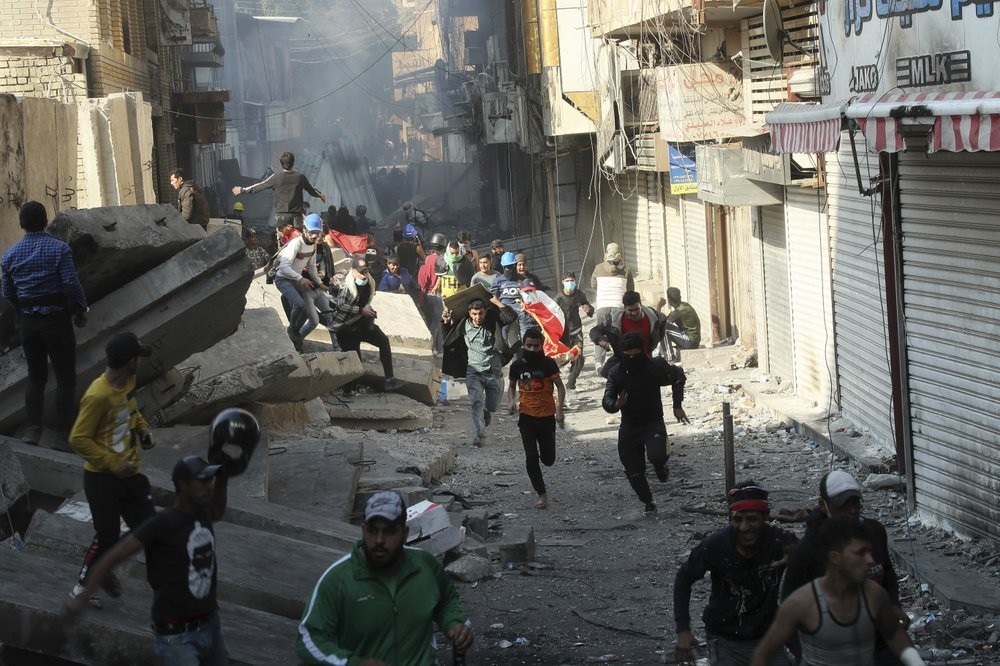Iraqi PM formally submits resignation amid more violence

BAGHDAD, Dec 1 (AP): Three anti-government protesters were shot dead and at least 58 others wounded in Baghdad and southern Iraq on Saturday, security and medical officials said, as Prime Minister Adel Abdul-Mahdi formally submitted his resignation to parliament.
Lawmakers were expected to either vote or accept outright Abdul-Mahdi’s resignation letter in a parliamentary session Sunday, two members of parliament said.
The prime minister announced Friday he would hand parliament his resignation amid mounting pressure from mass anti-government protests, a day after more than 40 demonstrators were killed by security forces in Baghdad and southern Iraq. The announcement also came after Iraq’s top Shiite cleric withdrew his support for the government in a weekly sermon.
The formal resignation came after an emergency Cabinet session earlier in which ministers approved the document and the resignation of key staffers, including Abdul-Mahdi’s chief of staff.
In a pre-recorded speech, Abdul-Mahdi addressed Iraqis, saying that following parliament’s recognition of his stepping down, the Cabinet would be demoted to caretaker status, unable to pass new laws and make key decisions.
Existing laws do not provide clear procedures for members of parliament to recognize Abdul-Mahdi’s resignation, Iraqi officials and experts said. Cabinet bylaws allow the prime minister to tender his resignation to the president, but there is no specific law that dictates the course of action should this be tasked to parliament.
“There is a black hole in the constitution, it says nothing about resignation,” said lawmaker Mohamed al-Daraji.
There are two main laws that could direct parliament’s course of action, he added: Either they vote Abdul-Mahdi out in a vote of no-confidence, per Article 61 of the constitution, or resort to Article 81 reserved for times of crisis when there is a vacancy in the premiership, shifting those duties temporarily to the president.
“My understanding is this will be taken care of per Article 61,” he said.
A vote of no confidence would demote Abdul-Mahdi’s Cabinet into caretaker status for a period of 30 days, in which parliament’s largest political bloc would have to propose a new candidate.
This is where the real problem comes in, experts and officials said.
Abdul-Mahdi’s nomination as prime minister was the product of a provisional alliance between parliament’s two main blocs — Sairoon, led by cleric Moqtada al-Sadr, and Fatah, which includes leaders associated with the paramilitary Popular Mobilization Units headed by Hadi al-Amiri.
Recent News

Do not make expressions casting dout on election: EC
14 Apr, 2022
CM Bhatta says may New Year 2079 BS inspire positive thinking
14 Apr, 2022
Three new cases, 44 recoveries in 24 hours
14 Apr, 2022
689 climbers of 84 teams so far acquire permits for climbing various peaks this spring season
14 Apr, 2022
How the rising cost of living crisis is impacting Nepal
14 Apr, 2022
US military confirms an interstellar meteor collided with Earth
14 Apr, 2022
Valneva Covid vaccine approved for use in UK
14 Apr, 2022
Chair Prachanda highlights need of unity among Maoist, Communist forces
14 Apr, 2022
Ranbir Kapoor and Alia Bhatt: Bollywood toasts star couple on wedding
14 Apr, 2022
President Bhandari confers decorations (Photo Feature)
14 Apr, 2022











